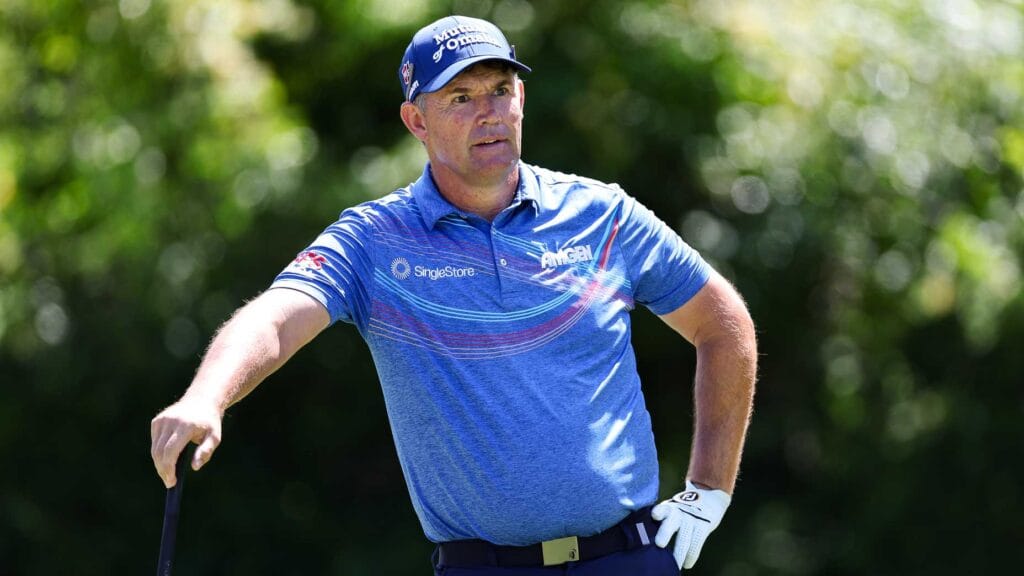Padraig Harrington, a legendary golfer with three majors and numerous worldwide wins, was recently inducted into the World Golf Hall of Fame alongside Sandra Palmer, a former LPGA Tour pro. Despite their illustrious careers, both Harrington and Palmer continue to have a deep love for the game and are actively involved in teaching and promoting golf. This shared passion was evident during their Hall of Fame induction night, where they exuded energy and enthusiasm for the sport, showcasing their unwavering dedication to golf even in their later years.
Harrington’s prolific career has garnered him recognition as one of golf’s greatest players, but he has also begun to explore other avenues within the sport. Despite his success on the golf course, Harrington expressed reluctance towards pursuing a coaching career at the highest level, citing the intense pressure and competition of professional golf tournaments. The mental aspect of the game, especially when faced with challenging putts, can create immense pressure for players like Harrington, affecting their performance and comfort level on the course.
Harrington’s insights into the psychology of golf, particularly in high-stakes situations, shed light on the complexities of the sport at the elite level. He emphasizes the importance of mental fortitude and belief in one’s abilities, highlighting the role of mindset in performance outcomes. Harrington’s approach to coaching emphasizes the psychological aspect of the game, focusing on helping players develop a resilient mindset and strategic approach to challenges on the course.
As Harrington navigates the transition from professional player to potential coach, he recognizes the value of his experience and expertise in guiding aspiring golfers. His willingness to share his knowledge and insights with younger generations reflects his commitment to the growth and development of the sport. Harrington’s emphasis on the mental aspect of the game suggests a shift towards a more holistic approach to coaching, incorporating psychological principles to enhance performance and resilience.
Despite his reservations about coaching at the elite level, Harrington remains dedicated to improving his own game and helping others achieve their golfing goals. His continued passion for playing and teaching golf underscores his enduring commitment to the sport and its legacy. Harrington’s transition from player to coach represents a natural evolution of his career, offering insights and guidance to the next generation of golfers seeking to hone their skills and mental fortitude on the course.
In conclusion, Padraig Harrington’s journey from professional player to potential coach exemplifies the transformative power of passion and dedication in golf. His unique insights into the mental aspects of the game and the challenges of elite competition offer valuable lessons for aspiring golfers and coaches alike. As Harrington continues to evolve in his role within the golfing community, his experience and expertise will undoubtedly shape the future of the sport for generations to come.


